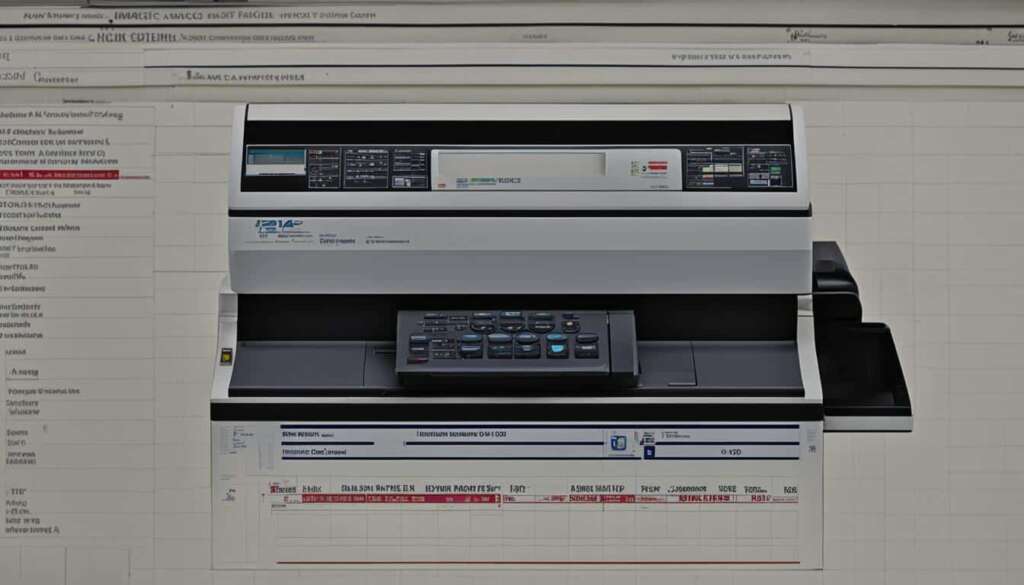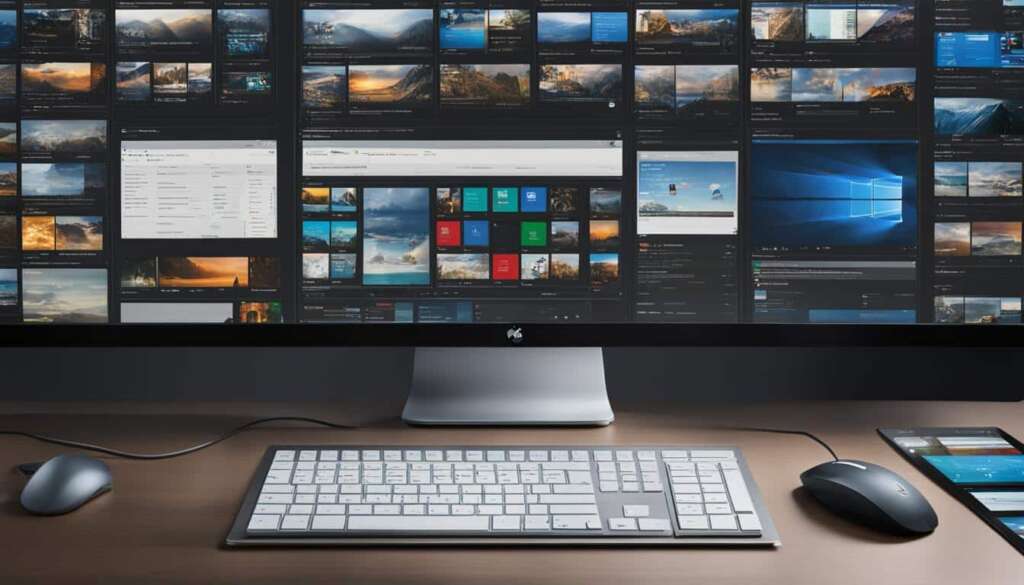Table of Contents
Welcome to the beginner’s guide to mining cryptocurrency on PC. If you’re interested in exploring the world of cryptocurrency mining and want to get started on your personal computer, you’ve come to the right place. In this article, we will provide you with a step-by-step guide on how to mine cryptocurrency on your PC, as well as essential information to help you understand the process. Whether you’re a tech-savvy individual or a complete novice, this guide will equip you with the necessary knowledge to begin your mining journey.
Cryptocurrency mining involves the creation of valid blocks that add transaction records to the public ledger. Specifically, in the case of Bitcoin, mining works by creating blocks of transactions with a hash that satisfies a certain difficulty level. The hash generated by miners serves as the identifier for each block and is derived from the data found in the block header.
It’s important to note that mining cryptocurrency on your PC requires specific hardware and software. Additionally, there are considerations to keep in mind to ensure profitability. We will delve into these essential requirements and considerations in later sections of this guide. Stay tuned to learn about the intricacies of cryptocurrency mining and how to optimize your mining setup for maximum efficiency and profit.
To illustrate the mining process, here’s an image showcasing the concept of creating valid blocks in cryptocurrency mining:
With this beginner’s guide, you’ll be equipped with the knowledge and tools to start mining cryptocurrency on your PC. Let’s dive in!
How Does Bitcoin Mining Work?
Mining is an essential process in the world of Bitcoin. It leverages economic incentives to provide a reliable and trustless way of ordering data within the blockchain. But how does Bitcoin mining work exactly? Let’s dive into the fascinating process.
- Mining for Hashes: Miners play a crucial role in the Bitcoin network by cycling through trillions of hashes every second. They are in a constant race to find one that satisfies the difficulty condition, in other words, a hash that meets the specific criteria set by the Bitcoin network.
- The Difficulty Adjustment: The difficulty of mining Bitcoin is not fixed. It adjusts approximately every 2016 blocks, or roughly every two weeks, to maintain a constant block time. This adjustment ensures that the average time required to mine a block remains around 10 minutes despite changes in the total hash power of the network.
- The Unalterable Block: Each block in the blockchain contains a unique hash, generated by combining the data found in the block header. Even altering the smallest piece of information within a block would significantly change its expected hash, rendering it invalid and rejected by other nodes in the network.
- Proof-of-Work: Bitcoin’s consensus protocol, known as “proof-of-work,” requires miners to dedicate real work in the form of time and electricity spent on hashing. This ensures that the creation of new blocks is resource-intensive, discouraging malicious actors from attempting to manipulate the blockchain.
As you can see, Bitcoin mining is a complex process that involves extensive computational power and specialized hardware. It serves as the backbone of the Bitcoin network, ensuring the security and reliability of transactions. In the next section, we’ll explore the essential requirements for Bitcoin mining and how they impact the profitability of this endeavor.
Essential Requirements for Bitcoin Mining
When it comes to Bitcoin mining, there are several essential requirements that miners need to consider. These requirements ensure efficient and profitable mining while maximizing potential returns. Here are the key elements you need to get started:
A Crypto Wallet
First and foremost, you’ll need a crypto wallet. This digital wallet serves as a secure repository for your mining rewards and cryptocurrency. It allows you to receive, store, and manage your digital assets safely. Choosing a reliable and reputable wallet is crucial to safeguard your funds.
Mining Hardware
To mine Bitcoin effectively, you’ll need specialized mining hardware. These devices are designed to perform the complex calculations required for mining. The most popular options include ASICs (Application-Specific Integrated Circuits), GPUs (Graphics Processing Units), and FPGAs (Field-Programmable Gate Arrays). Each hardware type has its advantages and considerations, so it’s essential to research and choose the most suitable option for your mining operation.
Mining Software
Once you have your mining hardware, you’ll need mining software to control and direct its operations. Mining software acts as an interface between your hardware and the Bitcoin network. It allows you to configure mining settings, monitor performance, and control mining rewards. There are various mining software options available, so choose one that is compatible with your hardware and offers the features and functionalities you require.
Factors Affecting Profitability
Profitability is a key aspect of Bitcoin mining. Several factors can influence the profitability of your mining operation. These include:
- The cost of electricity: Mining requires a considerable amount of electricity, so it’s essential to consider the electricity costs in your area. Lower electricity costs can increase profitability.
- The price of Bitcoin: The value of Bitcoin affects the potential returns from mining. Higher Bitcoin prices can lead to increased profitability, providing more incentive for miners.
- The hardware’s hash rate: The hashing power of your mining hardware plays a crucial role in determining the mining speed and the number of successfully mined blocks. Higher hash rates can result in more frequent rewards and increased profitability.
Mining in a Pool
Another strategy to enhance profitability is to join a mining pool. Mining pools bring together multiple miners who collectively contribute their hash power to solve blocks. By sharing the workload and combining hash rates, mining pools increase the chances of successfully mining blocks and receiving rewards. Joining a pool can be beneficial, particularly for individual miners with limited resources.
By satisfying these essential requirements for Bitcoin mining and considering the factors that affect profitability, you can set yourself up for successful and profitable mining operations.
| Requirement | Description |
|---|---|
| Crypto Wallet | A secure digital wallet for receiving and storing mining rewards. |
| Mining Hardware | Specialized hardware like ASICs, GPUs, or FPGAs for efficient mining. |
| Mining Software | Software that controls and directs mining operations for optimal performance. |
| Factors Affecting Profitability | Electricity costs, Bitcoin price, and hardware’s hash rate. |
| Mining in a Pool | Joining a mining pool to increase mining efficiency and profitability. |
With the right tools and considerations, you can embark on your Bitcoin mining journey confidently and aim for profitable outcomes.
Considerations for Building a Crypto Mining Rig
When it comes to building a crypto mining rig, one of the key considerations is the cost. ASICs, which are specialized mining hardware, tend to be the most expensive option. While it’s possible to mine with home computers, the increasing mining difficulty and competition may make it unprofitable in the long run.
Another important factor to consider is the hash rate. The hash rate represents the speed at which a mining rig can solve complex mathematical problems. A higher hash rate generally translates to better mining efficiency and profitability.
If the initial costs and ongoing expenses seem daunting, joining a mining pool can be a viable solution. By pooling resources with other miners, you can offset some of the costs and increase your chances of earning rewards. This collaborative approach can significantly improve your profitability in the mining process.
Ultimately, before investing in mining equipment and considering the costs of electricity, it’s crucial to carefully weigh the potential profits against the time it will take to recoup your expenses. By doing so, you can make an informed decision and maximize your chances of building a successful crypto mining rig.
FAQ
What is Bitcoin mining?
Bitcoin mining is the process of creating valid blocks that add transaction records to Bitcoin’s public ledger.
What is the double-spend problem in Bitcoin mining?
The double-spend problem refers to the issue of needing to find consensus on a history of transactions.
How does Bitcoin mining work?
Bitcoin mining works by creating blocks of transactions with a hash that satisfies a certain difficulty level.
What is the purpose of the hash generated by miners in Bitcoin mining?
The hash generated by miners is used as an identifier for any particular block and is composed of the data found in the block header.
Is Bitcoin mining legal?
Bitcoin mining is considered legal in various jurisdictions but prohibited in some countries.
How do miners get rewarded in Bitcoin mining?
Miners are rewarded with newly minted Bitcoin and transaction fees for their work.
What is the role of economic incentives in Bitcoin mining?
Mining leverages economic incentives to provide a reliable and trustless way of ordering data.
How many hashes do miners cycle through every second in Bitcoin mining?
Miners cycle through trillions of hashes every second to find one that satisfies the difficulty condition.
How often does the difficulty readjust in Bitcoin mining?
Difficulty readjusts every 2016 Bitcoin blocks to maintain a constant block time.
What happens if a component of a block is altered in Bitcoin mining?
Altering even the tiniest component of a block would noticeably change its expected hash and be rejected by nodes.
What is the consensus protocol in Bitcoin mining?
Bitcoin’s consensus protocol is called “proof-of-work” and requires real work in the form of time and electricity spent on hashing.
Why is a crypto wallet necessary for Bitcoin mining?
A crypto wallet is necessary for receiving mining rewards and storing cryptocurrency.
What kind of mining hardware is needed for Bitcoin mining?
Mining hardware, such as ASICs, GPUs, or FPGAs, is needed for efficient and profitable mining.
What does mining software do in Bitcoin mining?
Mining software directs the mining hardware and determines the mining rewards.
What factors affect the profitability of Bitcoin mining?
Factors that affect profitability include the cost of electricity, the price of Bitcoin, and the hardware’s hash rate.
How can joining a mining pool increase profitability in Bitcoin mining?
Mining in a pool can increase profitability by sharing the workload and combining hash rates.
Is building a mining rig expensive in Bitcoin mining?
Building a mining rig can be expensive, with ASICs being the most expensive option.
Can mining with home computers be profitable in Bitcoin mining?
Mining with home computers is possible but may not be profitable due to increasing mining difficulty and competition.
What role does hash rate play in Bitcoin mining?
Hash rate plays a crucial role in mining efficiency and profitability.
How can joining a mining pool help in Bitcoin mining?
Joining a mining pool can help offset the costs and increase profitability.
What should I consider when building a crypto mining rig?
It’s important to weigh the costs of equipment and electricity against the time it will take to recoup expenses and make a profit.












